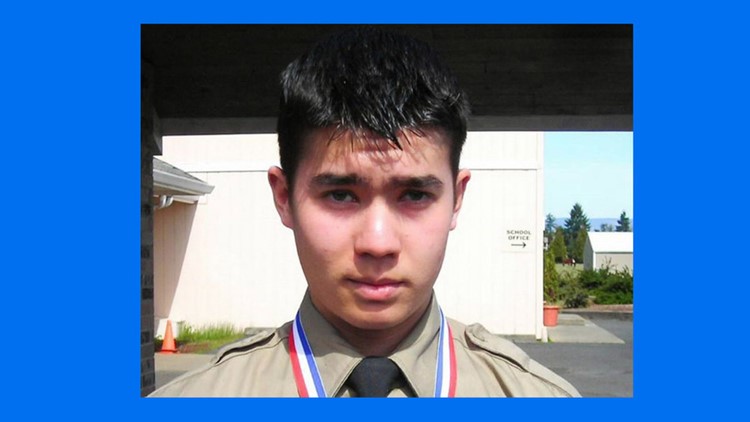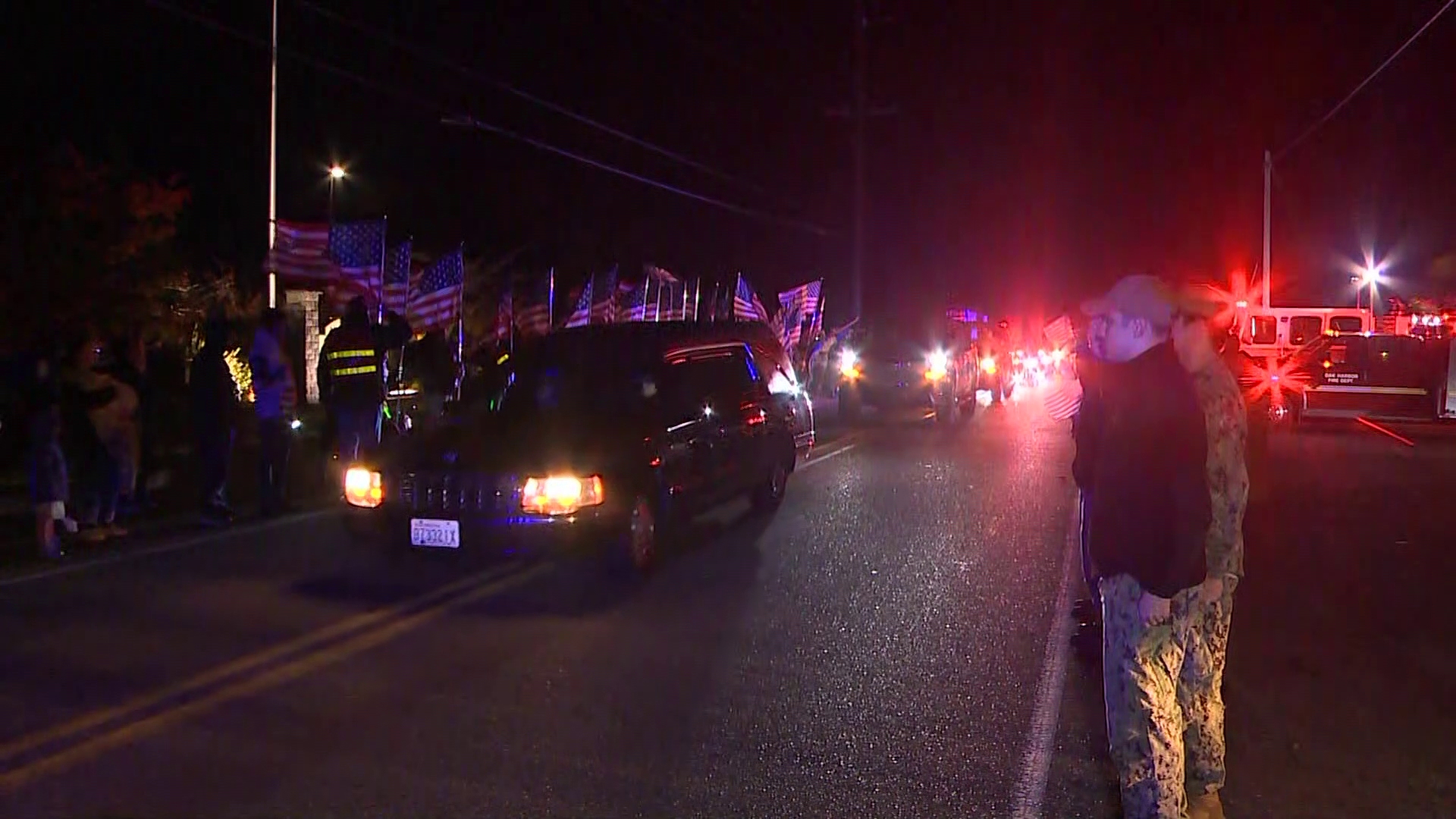The first time American John Allen Chau made it to the remote North Sentinel Island in the Indian Ocean, he came bearing gifts that included a football and fish.
He interacted with some of the tribesmen — who survive by hunting, fishing and collecting wild plants and are known for attacking anyone who comes near with bows and arrows and spears — until they became angry and shot an arrow at him.
It struck a book Chau was carrying, and the 26-year-old adventurer and Christian missionary swam back to a boat of fishermen that was waiting at a safe distance.
That night, he wrote about his adventures and left his notes with the fishermen. He returned to the island the next day, on Nov. 16.
What happened then isn't known, but on the morning of the following day, the fishermen watched from the boat as the tribesmen dragged Chau's body along the beach.
Dependera Pathak, director-general of police on India's Andaman and Nicobar Islands, said Wednesday that the seven fishermen have been arrested for helping the American reach North Sentinel Island. Visits to the island are heavily restricted by the Indian government, and officials were working with anthropologists to recover the body.
"It was a case of misdirected adventure," Pathak said.
Chau was apparently shot and killed by arrows, but the cause of death can't be confirmed until his body is recovered, Pathak told The Associated Press.
In an Instagram post, his family said it was mourning him as a "beloved son, brother, uncle and best friend to us." The family also said it forgave his killers and called for the release of those who assisted him in his quest to reach the island.
"He ventured out on his own free will and his local contacts need not be persecuted for his own actions," the family said.
Authorities say Chau arrived in the area on Oct. 16 and stayed in a hotel while he prepared to travel to the island. It was not his first time in the region: he had visited the Andaman and Nicobar Islands in 2015 and 2016. North Sentinel is part of the Andaman Islands and sits at the intersection of the Bay of Bengal and Andaman Sea.
With help from a friend, Chau hired the seven fishermen for $325 to take him there on a boat, which also towed the kayak Chau used to reach the island the first time, Pathak said.
After the fishermen realized Chau had been killed, they left for Port Blair, the capital of the Andaman and Nicobar Islands, where they broke the news to Chau's friend, who in turn notified his family, Pathak said. Police charged the seven fishermen with endangering the life of the American by taking him to a prohibited area.
One of Chau's friends said the adventurer spent a month at his home in Cape Town, South Africa, before going to India.
Casey Prince, 39, declined to discuss what Chau told him about his upcoming travel plans, saying he'd rather talk about the kind of man his friend was.
"If he was taking a risk, he was very aware of it," Prince said, recalling the time Chau told him about being bitten by a rattlesnake.
The two first met about six years ago, when Chau was a manager on the soccer team at Oral Roberts University in Oklahoma. Chau and others on the team traveled to South Africa to volunteer at a soccer development and social leadership program Prince founded, Ubuntu Football Academy.
Prince described him as easy to like, kind, joyful and driven by twin passions: a love of the outdoors and fervent Christianity.
"He was an explorer at heart," Prince said. "He loved creation and being out in it, I think having probably found and connected with God that way, and deeply so."
Before attending Oral Roberts University, Chau had lived in southwestern Washington state and went to Vancouver Christian High School. Phone messages left with some of his relatives were not immediately returned Wednesday.
"He was a beloved son, brother, uncle, and best friend to us," The Chau family wrote in its Instagram post. "To others he was a Christian missionary, a wilderness EMT, an international soccer coach, and a mountaineer. He loved God, life, helping those in need, and he had nothing but love for the Sentinelese people."
Survival International, an organization that works for the rights of tribal people, said the killing of the American should prompt Indian authorities to properly protect the lands of the Sentinelese and other Andaman tribes.
"The British colonial occupation of the Andaman Islands decimated the tribes living there, wiping out thousands of tribespeople, and only a fraction of the original population now survives. So the Sentinelese fear of outsiders is very understandable," Stephen Corry, the group's director, said in a statement.
Shiv Viswanathan, a social scientist and a professor at Jindal Global Law School, said North Sentinel Island was a protected area and not open to tourists. "The exact population of the tribe is not known, but it is declining. The government has to protect them," Viswanathan said.
Poachers are known to fish illegally in the waters around the island, catching turtles and diving for lobsters and sea cucumbers. Tribespeople killed two Indian fishermen in 2006 when their boat broke loose and drifted onto the shore.
___
Associated Press writers Gene Johnson and Phuong Le in Seattle, and Gillian Flaccus in Portland, Oregon, contributed.



